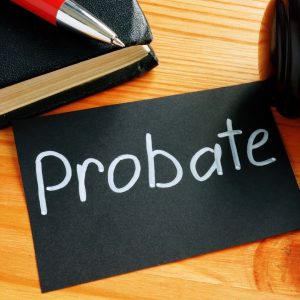Under ordinary circumstances, if you own real property at your death in California and it is not titled in joint tenancy or held in a living trust, you would be facing a probate situation.
In 2015, California created a special form of “revocable transfer on death deed” that (1) makes a donative transfer of real property to a named beneficiary; (2) operates on the transferor’s death; and (3) remains revocable until the transferor’s death. This instrument allows the grantor to avoid probate on this property at death. The revocable transfer on death deed does not affect ownership rights of the parties until the transferor’s death, and in effect creates a contingent interest on death. This deed is only effective for Transfer made by a transferor who dies on or after January 1, 2016. The statutes remain in effect until January 1, 2021, unless that date is extended or deleted (there is pending legislation to extend this to January 1, 2022). However, the expiration of the statutes does not affect the validity of a deed executed before that date or the authority of a transferor to revoke a deed after that date.
Before determining “revocable transfer on death deed” is the best option for you, you should consider the following:
- As noted above, these statutes must be continuously reviewed and renewed by the legislature and may not always be an available option in the future.
- You could still face probate. Although a revocable transfer on death deed avoids probate for that particular property, you may have other assets that would place you into a probate situation.
- What if you become incapacitated during your lifetime? You still need a durable power of attorney to appoint an agent to act for you. If the property was held in a living trust, your successor trustees would be able to step in and act on your behalf regarding the property.
- A revocable transfer on death deed does not provide a lot of contingency options. For example, what happens if all named beneficiaries predecease you? What happens if your beneficiaries are on resource-based public benefits and the receipt of this property outright would disqualify them? A living trust often includes provisions that address both these issues.
- If you have concerns about privacy, consider that recording a revocable transfer on death deed is public record. If your intention is to disinherit a family member, you might be able to avoid some confrontation during life if you use a living trust.
- You may unintentionally miss an opportunity to apply the parent-to-child exclusion on property tax reassessment. For example, you love your daughter and son-in-law and name them as beneficiaries on the deed. At your death, there will be a 50% reassessment of the property taxes because the transfer from you to your son-in-law does not qualify as a parent to child transfer.
You should discuss your options with an estate planning attorney to determine if a revocable transfer on death deed makes sense in your situation. Do not hesitate to call the Law Offices of Lisa C. Bryant INC at (408) 402-4064 to schedule a complimentary consultation.
All materials have been prepared for general information purposes only to permit you to learn more about our firm, our services, and the experience of our attorneys. The information presented is not legal advice, is not to be acted on as such, and may be subject to change without notice.




